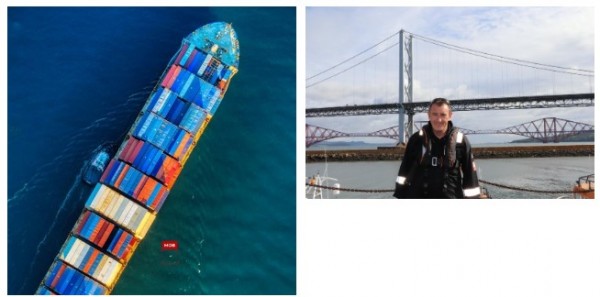Business News Support grows for India's ruling on ship cameras
페이지 정보
작성자 최고관리자 댓글 0건 조회 47회 작성일 25-10-07 16:54본문
Support grows for India's ruling on ship cameras
Stewart Gregory, Zelim’s Chief Operating Officer, said: “India has raised the bar for ship and crew safety.” The ruling follows a series of incidents where the absence of real-time situational awareness technologies has thwarted search and rescue efforts
Zelim is calling on international regulators and flag states to follow India’s lead on enhancing maritime safety and security, following the country’s introduction of new rules requiring the use of Closed-Circuit Television (CCTV) on domestic and international ships calling at Indian ports.
Zelim believes the integration of AI-powered monitoring technologies alongside these measures is critical to improving incident response, support search and rescue (SAR) operations, deter criminal activities, and provide evidence for investigations into incidents such as man-overboard situations.
The Edinburgh-based safety technology pioneer says the move represents a critical step forward in tackling growing challenges around ship and crew safety, and believes other IMO member states should consider adopting similar mandatory requirements.
India’s Directorate General of Shipping issued a Merchant Shipping Notice in February 2025 requiring CCTV installation on all newbuild and existing Indian flagged vessels of 500gt or more. It also recommends the installation of CCTV on all 500gt+ foreign-flagged ships calling at Indian ports. Mandated vessels must comply by 12 February 2028, or at their next classification renewal survey, whichever occurs later.
The ruling follows a series of high-profile incidents – including crew disappearances, man-overboard incidents, and collisions – where the absence of real-time situational awareness technologies has resulted in accidents or thwarted search and rescue efforts.
The Indian government cites several cases where limited visibility over shipboard activity delayed emergency response and SAR coordination and increased the likelihood of fatalities. It says the installation of CCTV is "recognised as a highly effective measure to enhance onboard safety and security”.
Sam Mayall, Chief Executive Officer of Zelim, said: “This is a landmark decision from India’s maritime authorities and signals a step change in maritime safety thinking. By mandating smarter monitoring systems, India is setting a powerful example that other maritime nations should follow.”
The Directorate General of Shipping recommends the adoption of AI-enabled software to enhance monitoring capabilities, specifying strategic CCTV placement around the ship’s main deck, forecastle, mooring and stern areas, bridge and superstructure.
Zelim’s own AI-powered camera technology extends these capabilities even further - helping crews and operators prevent accidents in real-time, while also providing critical forensic data during investigations.
Stewart Gregory, Zelim’s Chief Operating Officer, said: “India has raised the bar for ship and crew safety, not just by mandating CCTV but in setting out a comprehensive specification for camera coverage, night vision, resolution, placement, and data storage. This is about more than surveillance; it’s about smart, intelligent, AI-based detection, tracking and alerting technology fully integrated into a ship’s safety protocols. India’s regulation goes significantly beyond current IMO requirements.”
Zelim believes that voluntary best practice is no longer enough, and is urging consistent global standards to improve seafarer welfare and ship safety and security.
“The maritime industry has lagged behind sectors like aviation when it comes to adopting advanced safety technologies,” added Gregory. “With proven situational awareness technology already available – capable of improving both incident prevention and response – a global situational awareness standard is long overdue. India’s directive should act as a catalyst for other nations to adopt similar measures.”
Zelim is in direct contact with Indian authorities, including the Director General of Shipping, and the Ministry of Ports, Shipping and Waterways, and has offered technical support to ship owners and operators needing to meet the new specifications.
■ Contact: Zelim www.zelim.com













